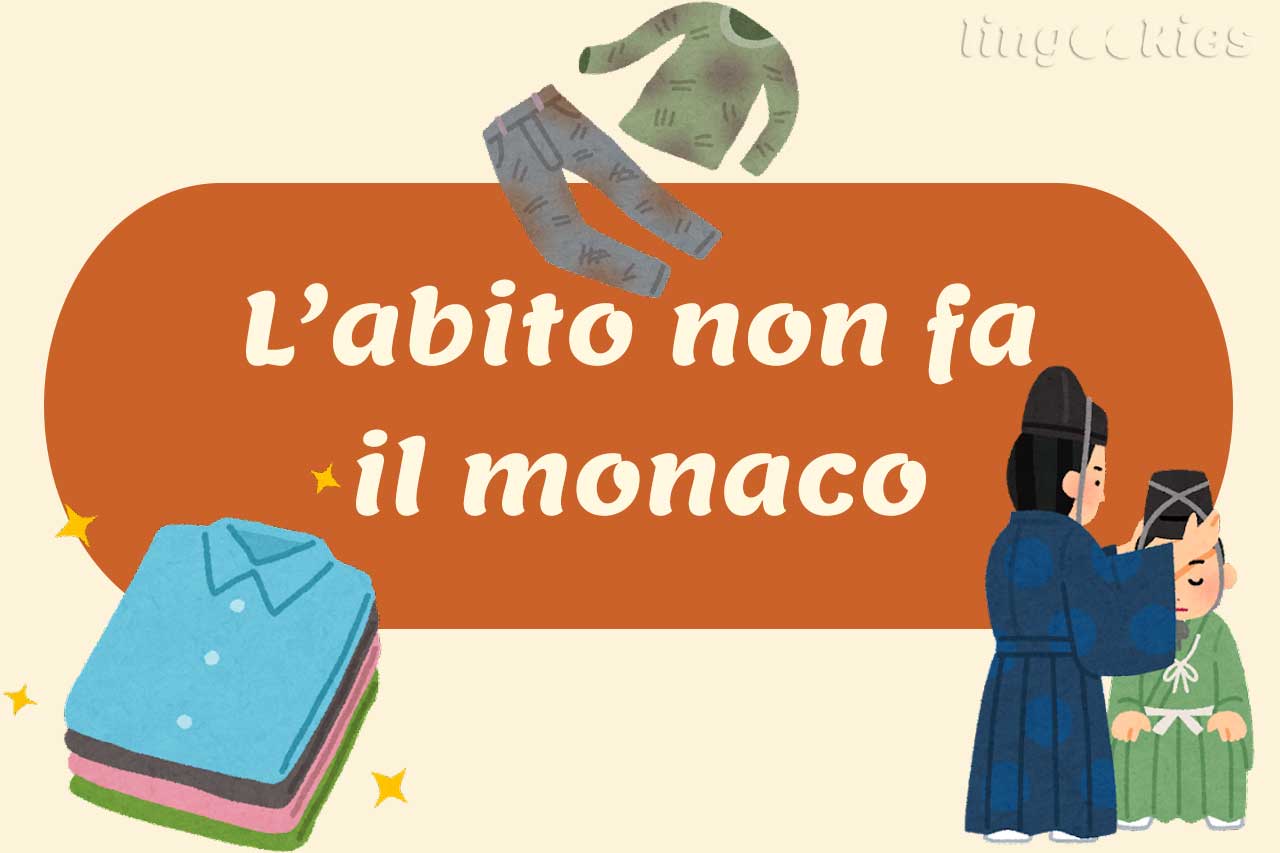Common Italian expression
| Pronunciation | |
| Literal translation | The clothes don’t make the monk |
| English translation | You can’t judge a book by its cover |
| Meaning | No matter how well you dress, your value and personality will not change |
Abito means gown and monaco means monk, but what’s important to understand here is that gown doesn’t refer to the clothes a person might be wearing, but rather to their appearance and the impression they make on others.
It doesn’t matter if you pretend to be gentle and virtuous, this is just an outer shell and doesn’t change what you really are on the inside. If you are an evil person and wear gold from head to toe, you are still an evil person!
There is also the proverb L’abito fa il monaco, but it’s not as common. It is the opposite of L’abito non fa il monaco, because it literally means “the clothes make the monk”.
It means that your personality changes for the better when you wear nice clothes. Basically, your personality reflects your clothes, which isn’t exactly true. This is why the first proverb is much more common.
Where does this idiom come from?
The proverb probably comes from an old Latin saying, cucullus non facit monachum, which means “the hood does not make the monk”.
Its meaning is similar to the proverbs l’apparenza inganna, “appearance is deceiving”, and non è tutto oro quello che brilla, “Not all that glitters is gold”, similar to the English proverb All that is gold does not glitter.
Related lessons
- fare (to do)
- abito (dress)
- monaco (monk)
- bianco (white)
- non (adverb)
- adverbs
- definite articles
More free Italian resources
You might want to keep learning Italian online with these free Italian resources:
❤️ If you liked this lesson on the expression l’abito non fa il monaco, share it with your friends!


